#most tragic preliminaries
Text
Vote for whoever you think is the most tragic! The top two most voted characters will win spots in the bracket for the full competition!
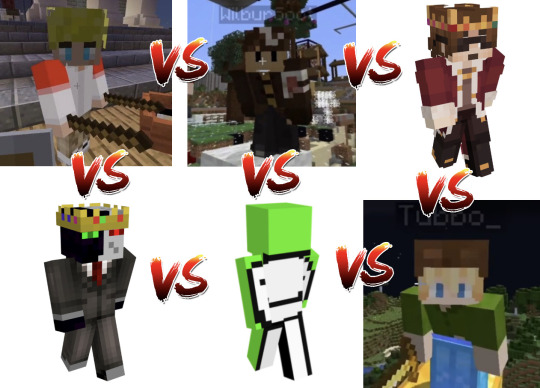
#most tragic preliminaries#polls#dream smp#c!tommyinnit#c!wilbur soot#c!eret#c!ranboo#c!dream#c!tubbo
339 notes
·
View notes
Text


Sword gays showdown preliminaries
Propaganda:
For Buffy:
While Buffy's most iconic weapon is her stake, she uses all sorts of weapons as the slayer, including multiple swords - like to kill her turned-evil-boyfriend to save the world, or swordfighting knights on top of a moving Winnebago, she can do it all.
Idk if she counts lol I'm thinking about the finale where she has this scythe thingy... Other than that she uses stakes which if you think about it are basically daggers
For Orym:
This guy might just a little dude but damn he packs a punch with this fighting style. He's like a goddamn sword dancer on the battlefield. Got not only a sword that been passed down to him from his family but it also it's a blade with a name (Seedling, the wayward Pilgrim, how fucking adorable is that) and been god touched by the Wildmother. He's not only canonly gay, but also married his childhood best friend. Will asked first and he said yes. So, extra level of adorable there, despite that he tragically lost his husband later on. He even got a whole tattoo sleeve in memory. Like, that's damn gay right there.
He studied the blade alongside his husband, and became part of the Tempest Blades (basically guards of the village and leader). After he and the party helped Keyleth (leader), he was given the 'Savior Blade' title. Protects the party with his life. He's also very small, if that counts for anything.
#sword gays showdown#buffy summers#orym of the air ashari#cr orym#critical role#buffy the vampire slayer#buffy#critical role campaign 3
109 notes
·
View notes
Text
Xenk Yendar (Dungeons and Dragons: Honor Among Thieves) - Autism Rizz Tournament Preliminaries

If you vote yes you must firmly believe in this character's autism AND in the rizz their autism gets them. If you don't want the character in the tournament just vote no
Propaganda:
He rizzed me in the movie theater....................... So autism... so so so handsome.. . Xenk yendar save me... xenk yendar........ save me xenk yendar
Does not understand social cues or lots of sarcasm. Everyone loves him and thinks he’s the coolest ever. He is a girl failure and the only competent person there.
Played by Regè-Jean Page and has a tragic backstory. Also also, his lack of understanding social cues makes flirting with his boyfriend easier and fun to watch.
he's hot & everyone's talking about him all the time & he is The most autism creature I have ever seen on the big screen
he's a sadboy paladin with big beautiful brown eyes what more do you want
#xenk yendar#dndhat#honor among thieves#character tournament#poll#tumblr polls#tournament poll#tumblr tournament
43 notes
·
View notes
Text
There is one thing getting in the way of the tournament proceeding.
I believe I said that only one kid per fandom. But as shown on the list, we have more than one kid each.
Which means...
TIME FOR THE PRELIMINARIES!
Number #1

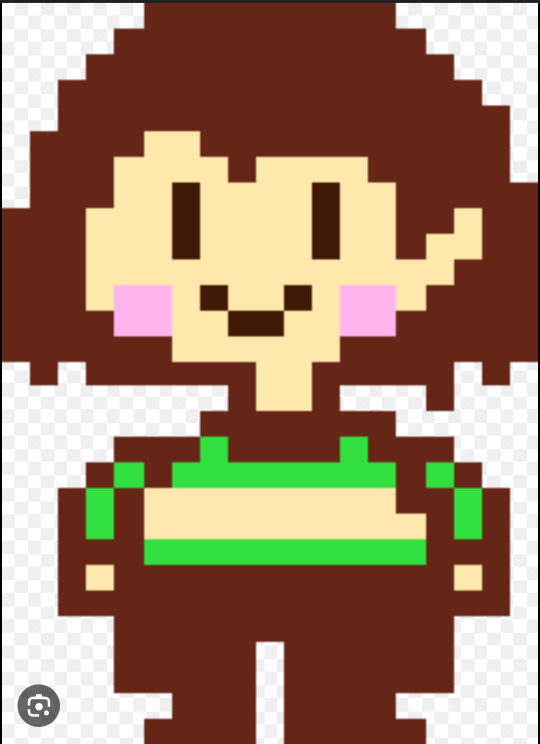
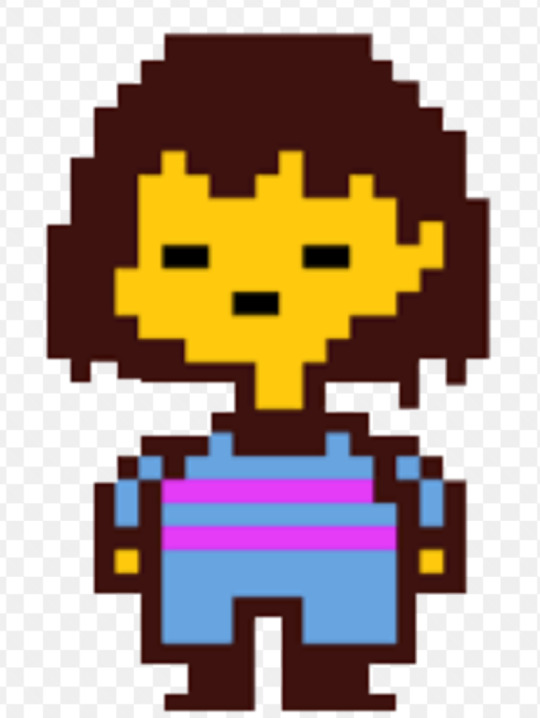
SIBLING VS SIBLING! And Frisk is there too
Only one can make it through to the tournament!
propaganda under the cut!
Asriel Dreemurr:
"He's so so so sad. He misses his family. He deserves good and nice things."
"His backstory is actually pretty tragic if you actually play the game and I sorta already sent in Chara not even 5 minutes ago so it would be pretty rude to leave out Asriel."
"ummm... because he's my favourite guy ever? duh."
"Dead child with God like powers"
Chara's propaganda:
"I am legally bound by a mystical contract to vote for this kid seeing as how I stole their name. Plus, they deserve a win cause they are a little stinker who can and will judge you for your actions =:)"
"Idk but they scare me a lot "
"They know how to slap some hoes. "
Frisk's propaganda:
"The child protag of all time, I love them"
"frisk undertale"
"I just think theyre neat. I feel like too often they're sidelined as just a silent player surrogate character, but when you actually dig into their character there's some wild stuff. Frisk is just so fun, actual madlad of a child."
"Frisk has the best expression throughout the entire game: -_-
They wear a striped shirt
They are iconic
There is a lamp, conveniently shaped just like them"
"iconic video game child"
"The most Child a kid could possibly be"
"Undertale is probably one of the most iconic indie games out there, thus Frisk is one of the most iconic video game kids out there."
"they're objectively the best videogame kid"
"they are so cools <3"
"I just want to see them lose cause pacifist ending or something idk"
90 notes
·
View notes
Text
Round 1 of preliminaries, group 15

The first two places get a place on the bracket
Little reminder: there will be 2 more rounds of preliminaries, the losing blorbos of this poll still have 2 chances of getting in the official bracketPropaganda under the cut
Wen Kexing (Tian Ya Ke / Faraway Wanderers)
"Author: so theres this OP cannibal murderer who's a huge homosexual and has a dissociative disorder...
Me, completely ignoring the OP cannibal murderer part: wow a huge homosexual with a dissociative disorder, hes just like me fr!!!!"
Homura Akemi (Puella Magi Madoka Magica)
No Propaganda
Nico di Angelo (Percy Jackson Series)
"gay (canon), trans (not canon but very popular headcanon), autistic (implied), depressed (canon), emo, and separated and left out by all his peers"
Heinz Doofenshmirtz (Phineas and Ferb)
"I too believe I am a threat but am a minor inconvenience at best."
Reki Kyan (Sk8 the Infinity)
"Sighs dramatically. Everything about him is just like me Fr I just. He’s an artist who gets excited over his art but nobody is as excited as him so he gets shut down a lot. He gets worried that his friends are gonna leave him behind because he’s not as good as them at skating. He self isolates after a fight and avoids his friends like the plague despite them only wanting to help. It takes him talking sense into SOMEONE ELSE for him to realize he doesn’t need to be good at what he does, he just needs to have fun doing what he’s passionate about."
q!Quackity (QSMP)
"No bitches. Just so bitchless it's sad. He fumbles every single bad bitch he's tried to bag. His good buddy that he clearly had some romantic feelings for? Sure he flirts with him, but he flirts with everyone and is lowkey not interested because he likes somebody else. Doesn't matter, he has two other guys he's into, and it looks like they might be into him! They both fuck off out of existence, one to become an entire different entity even. OK WELL YOU KNOW WHAT? There's this NEW guy who is interesting and good looki- Oh, the best friend from the beginning? Already dating him. And they're planning on getting MARRIED, how wonderful!!! good for them!!!!!!!!!!!!!!!!!!!!!! Well one of the guys that left just MIGHT come back!!!! So he sticks to that hope and becomes obsessed. So much so that when the guy comes back your friends tell him how obsessed with him you are and he's like 'uhhhhhhhhhhhhhhh'. He just takes Ls left and right, not only in love, but on EVERYTHING. He has so many issues and is so tragic and his way of understanding relationships is so bad and is such a loser, just like me!!"
#Wen Kexing#tian ya ke#faraway wanderers#homura akemi#puella magi madoka magica#nico di angelo#percy jackson series#heinz doofenshmirtz#phineas and ferb#reki kyan#sk8 the infinity#q!quackity#qsmp#preliminaries#tumblr polls#tumblr tournament#character bracket#character tournament
56 notes
·
View notes
Text
Some notes on Char’s Counterattack while it’s still fresh in my brain and right before I watch video-essays about how I didn’t understand the movie. (With spoilers)

For starters, it was as gay as promised. I’ve seen the Charmuro scuffle scene like a million times and it turned out to actually be gayer in context. For me, this is the aftermath of a very bitter and harsh divorce. The thing is already unsalvageable. They still try to talk it out every time they’re near each other, but Amuro is about to give up on Char completely (if he hasn’t, already). He even tells Lalah that he doesn’t want to be with that guy for all eternity as newtype ghosts, that’s how done he’s with Char.
As with Char, it feels that we needed another anime season or at least a couple of OVA’s to explain how he got there. I know that it had something to do with how disillusioned he was by the events at the end of Zeta, but the movie feels like it needed to give more context about him. It’s very clear that his ideals take a back seat in favor of his real motivations. He just wants to get back at the universe. Would trowing a meteor and freezing Earth actually help Earth’s restoration and humanity’s evolution? Did he stop to think that by doing such thing he’ll get Sayla and Kamille killed? Or was he too far gone to care about anyone that isn’t Lalah and maybe Amuro?
This may be unintentional but it’s amusing that the first part of Quess Paraya’s arc looks like a teen girl’s power fantasy: she meets Amuro, she gets adopted by Char, she happens to be the most special Newtype who becomes an ace pilot in a few days, there’s two boys after her, Char entrusts her to act on special missions and she even gets to kill her lousy dad. Under this framework it makes sense that she acts so selfishly all the time. Of course this later takes a dark turn when she starts feeling all the horrors of war and eventually gets killed by one of the older women she antagonized. Despite her not being a nice person at all, she was only a kid who was affected by her family situation and desperately needed a father figure. Amuro was honest enough to realize that he couldn’t fulfill that need (and he didn’t have to), on the other hand, Char admits that he took advantage of her and used her as a machine. He would’ve never done that to Kamille, that’s how low he’s fallen.
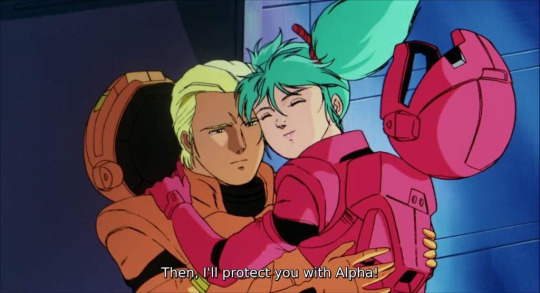
Finally, Char’s last words were about how Lalah Sune could’ve been a mother to him, showing that at the end he was unable to get over both his mother’s and Lalah’s death, which is very tragic from a man that most of the time came out as Larger than Life. However, none of this justifies his actions. Char’s Counterattack was the last piece in the puzzle that is Char Aznable, and after watching it, all I can conclude is that he’s kind of a loser, isn’t he?
(Yes, I’m aware that it’s way more complicated than that, there’s still much to say about how he projected on Amuro and the nature of his relationships with other characters of the franchise among other topics like Amuro’s growth and Hathaway’s arc, but these are just preliminary thoughts. I may do a more thoughtful review once I write more about Zeta and ZZ. Also those video essays about how I Don’t Understand Char are still on my to-watch list, my perspective could change after getting through all that).
35 notes
·
View notes
Text
Preliminary Poll
Lotor

Submission reason:
It's been a hot while but I'm pretty sure he had a sudden personality switch and was then left to die & the show then focused on redeeming his abusive mom (I support womens wrongs usually but come on. That was just in poor taste)
It's been a while since I watched it, but the general gist was that, though it seemed like Lotor was heading for a Zuko-esque redemption arc, the show ended up retroactively revealing that he'd done some unforgivable war-crime level stuff (and then killed him off).
They spent all that time building him up as a sympathetic abuse victim who contrasts with the more outright evil antagonists, only to randomly make him crazy and kill him off unceremoniously at the end of a season. Then they had the absolute audacity to give a redemption arc to his neglectful evil scientist mother. The disrespect!!!
When he was first introduced, he was this sort of anti-villain seeking to supplant his shitty comatose dad and reform the Galra Empire. He wanted to make things better for Galra-Alien hybrids like himself, even having a badass team of warrior women as his primary followers, and stopped at nothing to attain that goal. When Emperor Zarkon awoke and declared Prince Lotor a traitor to the empire, Lotor joined the Voltron team as an ally, forming a truly gorgeous relationship with Princess Allura along the way. Like, they had actual chemistry, with narrative parallels and some really good body language to show the interest was indeed mutual and affectionate. However, as soon as he killed his dad for the Voltron team, the narrative took a nosedive and turned Lotor into a people-harvesting madman seeking to take over the universe as an even worse tyrant than Zarkon, leading to him getting killed off unceremoniously.
Lotor was probably the most deeply nuanced character the show had ever approached, alongside Shiro, and even then they completely dropped the ball and went back on all that character development, seemingly just to clear the way for Allura to briefly share a sauceless relationship with Lance before getting killed off herself, and give the sympathetic villain role over to his abusive mom Haggar, who is significantly less relatable and much more shitty than he ever was before they retconned him into being evil.
Propaganda:
He's an extremely tall (like 7 feet I'm pretty sure??) purple space elf with Legolas hair. Draw your own nsfw conclusions from that. Also he has daddy issues. And mommy issues.
Lotor is great! I was a huge fan of him during his first season or two. He definitely operated in a moral grey area that involved a lot of underhanded tactics, but he still remained a sympathetic character in his motivations (and had one of those classic tragic backstories that always makes you want good things for a character). He led a team of four female generals where all of them, including Lotor himself, were societal outcasts. It originally seemed like he placed a lot of faith in them, and there was a really cool ""power of friendship but evil"" vibe. Lotor even switched sides and started making friends with the protagonists, so I think towards the end most people were guessing he'd get some sort of redemption arc.
I remember watching the episode where they revealed his space-war crimes and killed him off and going. huh. that was like. a fever dream, right? They didn't actually just turn this cool morally complex character into an unforgivable monster, right???? Like, I'm generally really cool with bad writing and iffy characterization--that's what fic is for!--but Lotor's whole thing was on another level. He got run through the blorbo blender fr
Princess Allura probably counts for this too, considering how she got red-stringed into dating Lance after seeing her last boyfriend go nuts and die, and then got dragged into a heroic sacrifice with very little setup.
Also, Lotor's whole arc before the switcheroo was broadly seen as a good allegory for children from interracial relationships being isolated from both of their parents' cultures, as well as a child growing up under abusive circumstances overcoming their abuse and building a life for themselves above their upbringing. It could have been so good. But they seemed far more interested in this hollow tragic villain setup for Haggar and this similarly lifeless dating arc with Lance than going through with the better option.
#look how they massacred them poll#look how they massacred my boy#lotor#vld lotor#voltron lotor#vld#voltron legendary defender#voltron
75 notes
·
View notes
Text
major grom/plague doctor pages that made me feel big emotions (pt 2.5/3)
yall im SO sorry for the long wait. It's been a year since I've sat down and did some Thinking bout this comic but my love for this franchise is immune to hiatus. I was orig gonna go chronologically but I wanted to post something rather than nothing so here is a panel I've wanted to scream about ever since I first read it.
"I'm not ready to lose you again" scene (Plague Doctor issue 14)

We all knew this page was coming; it is so fucking good. Surprisingly though, it's not the final hug that gets me as much as THIS PRELIMINARY SCENE RIGHT HERE.
Despite Sergey's queercoded flirtatious presence, he doesn't really show much physical affection towards anyone (at least, not in a vulnerable & genuine way) WHICH IS WHY I WENT APESHIT WHEN I SAW THIS. It shows a level of vulnerability that Sergey doesn't ever truly share with anyone because of course, it's reserved for Oleg and OF COURSE it has to come after he tells Oleg to SHOOT HIM if he ever comes close to putting his life at risk. It is SUCH a great moment in Sergey's development--not just the rearranging of his priorities (shifting from his plague doctor mission to Oleg), but his willingness to relinquish control to Oleg. He doesn't say "let me die" or "run away" or even just "stop me," motherfucker says SHOOT ME. It's, of course, a parallel to Sergey's attempted murder of Oleg in The Game, only now Sergey is willing to put himself in the same position as Oleg WITH the motivations REVERSED so that he intends to SAVE Oleg by letting himself get shot. Like. Poetic cinema. What the actual fuck.
Also, "your faith is the only thing saving me" is the most beautiful thing I think I've heard in my entire life. It's easy to think of Sergey as this laidback and callous terrorist who doesn't really interact with the human tragedies of his actions, and to an extent, this is true (he is VERY MUCH an "ends justify the means" kinda guy). But I think his remorseless attitude doesn't stem from an inability to grasp how truly awful he is, but rather, from a hyperawareness of the human cost of his actions that eventually just pushes him to ACCEPT his own irredeemability. Kinda like "I'm already past the point of redemption, so why stop now?" way of thinking. This line confirms it for me. It communicates the absolute DEPRAVITY Sergey assumes of himself, his belief in his own irredeemability, and the acknowledgement that Oleg's trust in his goodness is the only thing stopping him from losing himself to that impulse. Oleg is Sergey's heart and moral center. He redeems and humanizes him when the world and Sergey himself is unable to (exhibit A and B below).


And it is so incredibly tragic. That shot of Oleg reciprocating the hug is pervaded with such desperate and futile but UNKILLABLE hope, like he's trying to physically cling to the person Sergey used to be (or more accurately, who he thinks he is). There's even a role reversal here; now Sergey is the pragmatist, and Oleg is the naive idealist, unable to come to terms with the limitations of his own control. And that sort of deliberate ignorance only further hastens the inevitable, and it is so tragic, this scene. Another reference to The Game with the power dynamics between Sergey and Oleg reversed: once again, Oleg puts blind faith in Sergey. But this time, it may cost him SERGEY'S life, not his. And to an extent, Sergey also put his blind faith in Oleg as well; when the chips are down, he trusts Oleg to shoot him before he can kill him again. Whether their trust in eachother is enough to save them this time... that question is left uncomfortably open.
#major grom#plague doctor#sergey razumovsky#oleg volkov#serovolk#bubble comics#im a mess in distress but i still love this comic to bits n pieces#i hope the pd fandom is still going strong you guys contribute more to this world than most governments
89 notes
·
View notes
Text
Bad news for Republicans: violent crime is down across most of the US.
Donald Trump and far right media want people to believe there is a massive crime wave sparked by hordes of bloodthirsty migrants charging in waves across the southern border. In fact, the spike in crime which began with Trump's botched response to the COVID-19 pandemic is over.
To hear the latest version of Donald Trump’s “American carnage” narrative of a country lost without him, you would think law-abiding citizens are cowering in their homes or stockpiling weapons to deal with a massive crime wave that’s due to illegal border crossings caused by various nations emptying their prisons and by leftist “Soros-funded” prosecutors gleefully opening our own penitentiaries. The idea of an ongoing crime wave is incorporated into all sorts of MAGA rhetoric, including claims that prosecutors pursuing cases against Trump in New York, Atlanta, Florida, and Washington, D.C., should instead be frantically trying and jailing predators who are cavorting on the streets.
The alleged threat of murderous “animals” who entered the country illegally has been crystalized by Republican agitprop about the tragic death of Georgia nursing student Laken Riley, who was murdered while jogging, allegedly by an undocumented Venezuelan migrant. But graphic, horrifying anecdotal evidence does not an actual crime wave make. And the more we learn about what’s actually happening in our major cities, the clearer it is that the surge in violent crime that did occur during the COVID-19 pandemic continues to subside.
The COVID crime surge largely ended in 2022. Then the incidence of murder and other violent crimes dropped significantly in 2023, according to preliminary federal data, as CNN recently reported:
Fact check: Trump falsely claims US crime stats are only going up. Most went down last year, including massive drop in murder
To the degree that migrants are involved in criminal activity can now be attributed to Trump's blockage of border security legislation in the House by his spineless minions on Capitol Hill.
Bipartisan border deal hits legislative wall as Republicans say they will block bill
Republicans are now officially the owners of border chaos – not the solution to it.
Back to the featured article...
[W]hen a long upward trend in crime during the 1960s, ’70s, and ’80s — a true crime wave — finally came to an end, then dramatically reversed. The current numbers are beginning to show that we’re more than likely in a long period of stable (and, by past standards, relatively low) crime rates that were briefly interrupted by the many dislocations the pandemic caused in American life (and police effectiveness). So the myth of a deadly threat to Americans stemming from liberal policies on the border and in the justice system is mostly just that.
Perceptions of public safety, of course, aren’t always in line with objective reality, and violent crime is horrifying even if it’s not as prevalent as law-and-order demagogues suggest. An October 2023 Gallup survey that coincided with growing evidence of dropping crime rates showed 77 percent of Americans agreed there was “more crime” in the country than in the previous year.
Spectacular crime stories are always going to grab headlines. If it bleeds, it leads has been one of the mainstays of American journalism for centuries. You'll never see a headline in the NY Post like Murder Rate Plummets!.
One thing that is often overlooked is that the "long upward trend in crime during the 1960s, ’70s, and ’80s" mentioned in the article came to an end in the 1990s during the Clinton administration.
For ideological reasons, Democrats have been too restrained about publicizing their own law and order successes. As with the 1990s, another drop in crime is taking place under a Democratic administration – despite GOP attempts to exploit individual incidents of crime.
Donald Trump himself is a "one man crime wave".
youtube
#dropping crime rates#law and order#crime#murder rate#donald trump#american carnage#trump border chaos#trump covid-19 spike in crime#trump administration's botched response to covid-19#trump is a one man crime wave#republicans#election 2024#vote blue no matter who#Youtube
14 notes
·
View notes
Text
Preliminary Round: The Locked Tomb
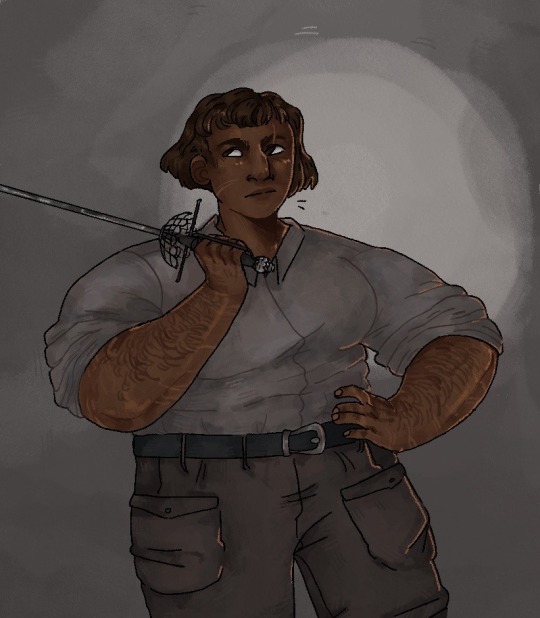

Got tired of waiting to hear back from the Corona fanartist so pretend she's there
Cam art by @friendamedes, alecto art by @liebreluna, both used with permission
This is for the second Locked Tomb slot, Gideon is already in
Propaganda below cut:
Camilla Hect
trained w a rapier & knives. practical. handsome. extremely efficient and capable; she’s my boyfriend and I love her. Please vote for cam she is my life
Gideon Nav uses one very large sword in defiance of the expectation that a cavalier should use a rapier, but Camilla Hect instead uses two. Just as much defiance of social expectation, twice as many blades. The reveal of her specific brand of swordiness is the heart of one of the book's most iconic lines: "Cam? Go loud."; In the spirit of the laconic charm of the Warden's Hand I will simply say "Camilla's competent."
She prefers two short swords but has been know to wield a rapier and other such bladder instruments; She also loves to organize spreadsheets
Go loud.
Alecto the First
we don't know much about her yet because (SPOILER) she's the body locked in the tomb. we know the characters who know who she is are wary of her and she was buried with a sword. we kind of see that she's good at picking things up instinctively (like body language and facial expressions), and does the same thing with swordfighting, but I think the author is saving the rest for the last book (which, luckily, is called Alecto the Ninth); she's very cool and if I remember right the first thing she does on breaking free of the tomb is take her sword and stab the guy who put her in there (who happens to be God)
Corona
She delights in the scandalous pleasure of duelling despite her social status as a necromancer! She gives Gideon the absolute horniest challenge to a swordfight in the entire book, and only slightly ruins it!; "But Tamsyn, I don't know whether I want to gaze in awe and adoration at a gloriously idealised vision of beauty, strength and smirking power, or be moved by a deeply tragic and broken woman whose ambivalent relationships swing between a desperate need for validation and a struggle to escape the orbit of someone she's deeply twisted with." Tamsyn Muir, smiling beatifically, replies, "You don't have to pick," and gives us Corona.
She wields a rapier
she (SPOILER FOR BOOK 1) is using her swordsmanship prowess to hide that she doesnt actually have necromantic powers like her sister
#camilla hect#alecto the first#coronabeth tridentarius#the locked tomb#swordswoman showdown#poll#official#just used the artist's id for cam#prelims
36 notes
·
View notes
Text
Was anybody going to tell me than in some versions, both Achilles and Patroklos have sisters?
@t0yearnf0r made me discover Patroklos’ sister, through my little research I found out about Achilles’.
Polydora (Achilles’ sister) do is mentioned in one passing line during the iliad (which I can’t believe I forgot) but it’s have been up for debate. The line is
"Menestheus of the dancing-breastplate led one contingent, son of the swift-flowing river Sperkheios whom the daughter of Peleus, beautiful Poludôrê bore when she shared the bed with the indomitable river-god, Sperkheios, although by reputation he was the son of Boros, the son of Periêrês who wooed her openly by offering countless gifts."
-Iliad. 16.173-178
(No idea who the translator is, I got that passage from the internet + my copy of the iliad is not in English)
Some say she’s the daughter of another Peleus, that’s she’s a bastard child and she’s just never mentioned because her birth is shameful, or that Achilles never mentions her because she’s dead.
What’s more confusing, she has different possible mothers regarding who you ask (she might be a child of Peleus, but certainly not of Thetis). Some say her mother was Antigone (not our tragic girl Antigone, but Antigone, supposed wife of Peleus and daughter of Eurytion).
She must have been a bit older than Achilles since by all accounts Peleus fathered her before (1) the Kalydonian Boar Hunt, (2) the sacking of Iolkos and (3) the Voyage of the Argo. She would likely have been raised in a separate household from Achilles and married off before he went to study with the centaur Chiron!
Excerpt from this article
Another version makes her the daughter of Patroklos' mother and Peleus. Which makes her both Achilles and Patroklos’ half sister. Wtf happened over there.
We know less about Myrto (Patroklos’ sister), but she’s mentioned once by Plutarch.
Now Eucleia is regarded by most as Artemis, and is so addressed; but some say she was a daughter of Heracles and of that Myrto who was daughter of Menoetius and sister of Patroclus, and that, dying in virginity, she received divine honors among the Boeotians and Locrians. For she has an altar and an image built in every market place, and receives preliminary sacrifices from would-be brides and bridegrooms.
-Plutarch, Life of Aristides 20. 5
(Don’t know the translator either)
She was apparently one of herakles’ lovers, and mothered a daughter who is pretty successful (has an altar and image in every market place and is regarded by most as artemis).
I don’t know if she’s related to Patroklos’ by mother too
#Ctimene 🤝 Myrto 🤝 Polydora#(forgotten sisters)#(my girl ctimene is odysseus’ sister)#achilles#patroklos#tagamemnon#the iliad#polydora#myrto
14 notes
·
View notes
Text
Vote for whoever you think is the most tragic! The top two most voted characters will win spots in the bracket for the full competition!
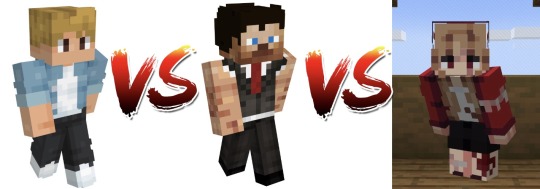
#most tragic preliminaries#polls#traffic life smp#third life#last life#double life#limited life#c!jimmy solidarity#c!skizzleman#c!pearlescentmoon
354 notes
·
View notes
Text
LAST TWILIGHT AND READING THE SUNSET – VISUALS, OPTICS AND ENDINGS IN BONDAGE TO THE BAHT

Last Twilight aired its final episode on Friday 26 January 2024, and the response on BL Tumblr to how things wrapped up (at least among the majority of BL watchers whom I follow) has been a lot of head-shaking disappointment, if not exactly full-on hatred. Without the bittersweet touches we've come to expect from Director Aof as counterballast for his trademark uplifting sentimentality, the ending came across as unforgivably sappy and sugary-sweet for many of us.
And I found myself agreeing with a lot of the criticism being flung at Last Twilight – for the ardent Noppharnachionados accustomed to more nuanced, thought-provoking output from Director Aof (Moonlight Chicken comes immediately to mind) the final episode of Last Twilight (and especially the fourth instalment, Part [4/4]) felt very boxer-gloved, rushing to hit its marks but then only clobbering bluntly at the surface, never venturing deeper and lacking subtlety at every turn.
But I've been giving it a once-over, because it's a little surprising to me that Khun Noppharnach (who's such an expert at his craft) could land quite the dud that some, including me, were so uncharitably calling Last Twilight.
And I now think – as Khun Noppharnach has done so many times before – he may very well be trolling us again. Because on my rewatch, I'm finding that the narrative holds certain clues that Director Aof was possibly quite conscious of what he was doing with Ep.12 of Last Twilight. On closer inspection it's a whole lot cleverer than it seems (maybe a bit too clever for its own good) – but it does require much sign-reading though (and caveat: I'm not a trained or professional tea leaf reader!). 🤷♂️
Anyway, after a speed-run rewatch of the 12 episodes (just skimming the surface really, so forgive me if I overlook anything) I've decided I need to reconsider a lot of my preliminary judgement about Last Twilight's final episode (and the series in general). I now think it actually does satisfy on a number of levels (even while it continues to disappoint on so many others). But because of work and other commitments though, this post is very late (still, better late than never I guess!)
I'm not wanting to spend too much time on the text and subtext, because it's the metatextual level of Last Twilight (what this BL says about BL) that intrigues me the most. But this is going to be a super-long post anyway.
In many ways Last Twilight was a departure from Director Aof's usual work, and the most obvious was its return to the structure and content typical of a traditional romance drama. Khun Noppharnach had actually moved away from this in his output over the past few years (once again, Moonlight Chicken is the paragon of examples; Bad Buddy nodded at this, if only to subvert it and signal to us that Khun Noppharnach was attempting an overhaul of LGBTQ+ depictions in the BL industry).
Some background to start things off – BL, including Thai BL, owes a lot to het romance dramas that set the archetypal framework early on, and early BLs often followed that inherited formula very closely (I think SOTUS and Together with Me fit this bill).
Painting with the broadest of brushstrokes, a stereotypical (het) romance drama can usually be expected to structure its narrative according to the following:
The meeting of the protagonists, usually a fraught mix of attraction and friction;
They go on a journey of falling in love with each other (and we get to watch along);
A major conflict arises to test their love and commitment;
They triumph over the conflict and end up happily ever after (most of the time) or are overcome by it (and the love story ends tragically, some of the time).
As a lot of romance stories are targeted at women, typically the female protagonist in a het romance drama is the center of attention, and the story is told from her point of view as well.
And because of their het predecessors, early BLs also tended to depict their couples with a masculine/feminine framing (which could also be spun out into a dominant/submissive and/or active/passive dynamic – the dreaded seme/uke binary).
Director Aof took a wrecking ball to all that with Bad Buddy (upending the structure, subverting the conflict, dispensing with seme/uke), and his works have since veered toward more-rounded LGBTQ+ drama, centered around romance, but forgoing the stereotypical structure and beats of more traditional romance dramas.
But if you think about it, Last Twilight actually hews quite closely back to the original template.
For example, Mhok is a big, scruffy ex-convict and mechanic, stereotypically masculine – the proverbial seme – while Day is slighter, younger and a Mama's boy (despite what Night says at Ep.10 [2/4] 16.24) leaning into uke territory.
The structure was pretty traditional as well:
The early entanglements of Mhok and Day were a mix of antagonism and attraction;
They went on a journey of falling in love with each other despite their differences, that we were allowed to witness – we had "masculine" Mhok losing his heart to "feminine" Day first, with the seme then pursuing his grumpy uke (a tsundere?) and subjecting us to plenty of swoonworthy Aaaaw moments as Mhok piled on much tenderness, care and affection;
The major conflict that tested their love and commitment was actually Day's questioning of Mhok's motivations, leading to their rupture in the clichéd Episode 11 of Doom;
They triumphed over the conflict after Mhok returned and demonstrated that he'd grown and learnt his lessons in meeting Day's less visible needs – not very convincingly though (and I think this is one part where a lot of us feel extremely let down by the narrative) – but it was enough to sweep Day off his feet once again, and they got their happily ever after.
There was some padding in the middle (including the obligatory out-of-town tourism jaunt – I'm convinced BLs that do this receive grants from the Tourism Authority, and in Last Twilight we were treated to a sojourn in Songkhla). The show really had to work stretching things out over 11 episodes (which was why, for me, the pacing started to drag in the second half). But overall I think the structure of Last Twilight marks a faithful return to BLs (and het romances) of older times.
With regard to characterization, Day rendered progressively hapless and helpless as his vision declined made him easy to read as a damsel-in-distress, the object of savior-knight Mhok's affections and ministrations. It's thus also unsurprising when we were shown more of Day's point of view than Mhok's (just as we usually get to see more of a heroine's interior journey in traditional het romance dramas than her romantic foil's). Last Twilight was nodding at the past once more, asking us again to view it through the lens of an old-school (BL) romance drama.
A lot of romance dramas also tend to be intellectually lightweight – some are pure sentimental, throwaway indulgence – and if we place Last Twilight somewhere on the less demanding end of the spectrum, it's a more than serviceable example of the genre and has in fact more heft than most. (I was expecting it to land more in queer drama territory as has most of Khun Noppharnach's work, and the fact that it only half did contributed a lot to my sense of disappointment at the end.)
But as a lighter piece of trad BL fluff, Last Twilight did punch above its weight class very often. And all of the discourse around vision and Day's increasing blindness was the early tip-off to one of its weightier, central themes – that of seeing and being seen in the light of one's truth.
As his vision faded, Day found himself subject to his greatest fear – of being seen as less than his truth, especially when by all accounts he had been a storied and admired athlete prior to his visual debilitation. Day was still the same person despite his loss of vision, and he was painfully reminded of this fact every time those around him forgot it. Last Twilight deftly showed us that his early snark and cynicism were a brittle defense against being seen as nothing more than an object of pity, the ghost of his former self (which is what Mee/Me in the novel Last Twilight was also about).
There are many examples of this, e.g., when he avoided his friends after blindness set in, and his meltdown at the party they threw him after a rapprochement (Ep.6 [3/4] 20.12, when it became clear they viewed him as a weakling in need of rescue at the first sign of trouble, inferior to his previous incarnation as an athletic champion). The story arc with August's feigned romantic interest was also another of Day's nightmares coming true, being exactly the sort of innocently insulting and unconsciously condescending treatment he was trying to avoid.
And of course this was the reason behind his break-up with Mhok in Episode 11, when he sensed that Mhok's care and concern were in part tied to a notion of Day as being less than whatever the nebulous concept of "normal" was in his head. (For context, Mhon and Day have an exchange about the meaning of a "normal" life for Day at Ep.10 [2/4] 7.35), Mhok talks about Day wanting to be "normal" at Ep.11 [1/4] 10.22, and Mhon reminds Day of his wish to be "normal" at Ep.12 [3/4] 16.29). Despite – or maybe because of – how objectionable the word may be, I think Last Twilight is inviting us to question our ideas about it too.)
So a large part of Day's story arc involved him overcoming his own hang-ups and dealing with how he was seen by the world around him, to stand in the light of his own truth (as a proud member of the differently abled community).
Mhok's character also had a parallel journey. Excluding those who knew him well, society refused to see beyond his rough-hewn persona (and his prison background too, it must be said). His options in life were thus limited by how he was always seen as an outsider, and subjected to othering because his presence was invariably associated with negativity, risk and harm.
But as Mhok demonstrated time and again, his truth (that for the longest time only Porjai and maybe Rung could seem to see) was far less violent and menacing than what was read by the people around him. And his character's journey toward self-actualization in Last Twilight was to arrive at a life truer to his inner self, noting that what we see at the beginning of the series is Mhok trying valiantly to live up to his ruffian image, prone to fights and aggression. With this, it's possible to read that Mhok himself was unable to comprehend fully his own inner impulses, and it was only his time as caregiver and later faen in Day's life that opened his eyes to living out his more nurturing, other-focused energy within (and that must have served him well too, in his later career as a chef crafting dishes for others to enjoy).
In contrast to Day, whose struggle was also about being seen for his truth while cast (by others) in a negative light, Mhok chose to align himself with whatever role the world put him in (whether it was a rabble-rouser mechanic, a straight boyfriend to Porjai, or a guardian to the infantilized Day) whereas Day chose to reject any outsider-determined identity outright. And Mhok failed at his roles mostly because they were inauthentic to his truth, except for his time as Day's caregiver. For the first time there Mhok's failure was different, not because the caregiving recognized his own truth (coming from kindness and softness within) but because it did not recognize Day's truth (as his approach to taking care of Day still perpetuated the invalidation of Day's wholeness as a person).
Mhok and Day's names are also a quiet hat tip to this – with Mhok's name (หมอก, that means fog or mist) also a metaphor for how visibility of the truth behind his amorphous self was obscured for the longest time, while Day's name (actually the English word day, with all its connotations of light and clarity) is a metaphor for how he was clear about his own truth and identity from the start, but needed to be seen correctly, undistorted by any filter of shame or pity.
However, GMMTV's commercial insistence on pair branding worked somewhat against the characterizations – my read is that Day was probably written as much more fragile in appearance (belying the tough athlete that he really was beyond surface impressions, and explaining the tendency of his friends, family and caregivers to want to infantilize him post-blindness). As an aside, badminton is one of those sports that forgives a certain delicacy of frame, as it rewards lightness and agility more than brute strength on the court. Meanwhile Mhok was (I think) written as this big beast of a man whose appearance would scare off all but the most foolhardy, meaning that his innate kindness and sensitivity would remain unseen by most.
Unfortunately Sea is built pretty sturdily as an actual badminton athlete (and he's tall as well) while dermatologist Jimmy is just too porcelain-skinned and delicate-featured pull off any convincing evocation of physical brutishness. Pity, because the pair do have chemistry and their acting was mostly credible in Last Twilight (especially from Sea, who brings an easy and natural charm to his portrayals).
Anyway, I can suss out two visual metaphors in the series that illustrate the ideas described above. But as the analysis of these metaphors is also long, I've moved it all away into its own post linked here: The Fishtank and the Flowers. I found both metaphors to be fascinating (the goldfish aquarium, as well as the pairing of the jasmine with the sunflower), but it was the blooms especially that took me by surprise (when it became clearer which was assigned to Mhok and which to Day). 🤩
So while we're on the characters though, here's an aside about the criticism of how Mhok was treated by the narrative and the outrage surrounding his apology at Ep.12 [2/4] 10.55. Yes, he had been a selfless caregiver and a caring lover, but there were also numerous examples of him treating Day as less than an adult with his own agency, doing to Day what August, Mhon and the replacement caregiver (Assistant Director Meng Chaiyapat's extended cameo, at Ep.10 [2/4] 0.27) had done, by controlling the playbook and removing Day's choice and say in matters directly related to his own life. Some examples of where Mhok fell short:
Pretending not to find the copy of Last Twilight in the Chatuchak secondhand bookstore, gaslighting Day into believing it was his own discovery (Ep.3 [3/4] 9.41) – you might lie to a kid about Santa Claus (and I'm divided about that), but nevertheless Day was not a kid and should not have been treated like one.
Lying about Night's involvement in their plan to see Mount Veha (Ep.8 [1/4] 17.34) – more gaslighting.
Going back on his word and telling Mhon and Night about Day winning the dancing garland (Ep.11 [4/4] 7.35) – this was just plain disrespectful, especially after Day had shared his mixed feelings about the "win" (Ep.11 [4/4] 1.45).
Taking advantage of Day's blindness to prank him (Ep.11 [3/4] 7.32 and Ep.11 [4/4] 3.38) – unless Day liked surprises (of which I see no sign) laughs derived from exploiting someone's vulnerabilities are never to be lauded (please don't jumpscare the blind, people).
And the ultimate – lying about the job offer in Hawaii, which was the last straw for Day (Ep.11 [4/4] 10.51).
All the above might have come from a place of love, motivated out of the goodness of Mhok's heart – but even if they were meant to uplift or support Day, his actions were all disrespectful (even damaging) to Day's own agency and personal situation as someone struggling with visual disability.
In this light (pun intended) I had to re-think my judgement of Mhok's apology to Day in Ep.12, because he did need to learn to care for Day on terms acceptable to Day as well, and not have expected him to give that up just because he needed care.
Now because it's Khun Noppharnach, it will always be possible to give a queer reading to his work. So Day's dread at being seen as less than what society perceives as "normal", and Mhok's struggle with his status as the feared and misunderstood "other", can both be read as stand-ins for (some parts of) the LGBTQ+ experience, where full acceptance of the queer minority has yet to become the norm for most, if not all, societies. But I guess that should be obvious to all by now.
Anyway, there's a whole lot more burbling within Last Twilight that can be explored at length, but as I've gone on too long already I'm simply going to mention them here and then skip on:
The novel Last Twilight that features so prominently everywhere within the series (that not-so-coincidentally shares its name) is rich with significance as a parallel to (and comment on) Mhok and Day's own story, especially with Mee/Me's struggle to be seen in a world often blind to her presence.

Day becoming increasingly unseen as the neverending night of blindness became his defining identity is mirrored by Mee/Me needing to step away from darkness in order to be seen by the world around her (and her light-chasing is also a parallel for the sun-seeking of the sunflower, Day's totemic bloom, and in that way another metaphor for Day's reliance on external validation – see this write-up linked here for more elaboration on that aspect of Day's personality).
Day's blindness was not at all the first time Khun Noppharnach has used a form of health-related affliction as a metaphor for the queer condition, highlighting the parallels of the LGBTQ+ experience with the social model of disability. Other examples of this in his work include Heart's deafness in Moonlight Chicken, Tian's and Med's heart conditions in A Tale of Thousand Stars and He's Coming to Me respectively (the latter maybe less so though) and Pran's obsessive-compulsive disorder in Bad Buddy.
Also in He's Coming to Me, Med's predicament as a ghost subject to all sorts of constraints in the world of the living, as well as his invisibility to those insensitive to his situation, was a parallel with Last Twilight's theme of being seen for your true self even as the wider world imposes restrictions on you, and is similarly an allegory for the LGBTQ+ experience as well.
Last Twilight's ideas about seeing and being seen correctly were also touched on (somewhat briefly) in Bad Buddy, in the discourse around Ink's camera, photography and Pat/Pa's contact lenses.
Mhok's journey was milestoned with numerous examples of the food = love trope, in which he could be seen giving of himself through the creation of dishes and meals for others.

(above) Last Twilight Ep.11 [2/4] 0.39 – Mhok's gift of Black Chicken Soup (ซุปไก่ดำมา) to Porjai is but one of many examples in the series of him showing his love to others through his cooking; in this instance Black Chicken Soup (made by double-boiling silkie chicken with medicinal herbs) is a traditional Chinese preparation, warm and comforting, that is considered particularly nourishing for moms newly post-partum and is also popular in Thailand for the same reason
This is paralleled also by Mhon and her career as a chef (especially when she ladled soup out for her ex-husband in Ep.12, which is a bittersweet Noppharnach touch with reams of cultural backstory – but that's fodder for another post though).
And Assistant Director Au Kornprom's cameo as chef-de-cuisine in Singha's hotel continues a meta-level portrayal of his role in BL as some sort of leader, instructor, teacher or creator with a select group as the intended beneficiaries of his work (see these links here and here for other examples).
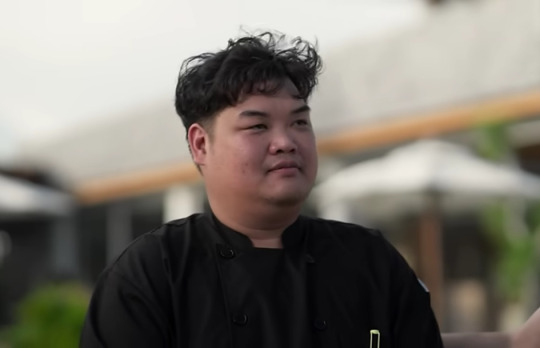
(above) Assistant Director Au Kornprom Niyomsil pops up in a cameo as Chef Tom in Last Twilight Ep.11 [2/4] 9.47
I think Director Aof is announcing that Khun Kornprom is his designated successor as the next generation BL director at GMMTV who will (perhaps) be carrying on a measure of queer activism within his own output.
And that brings me to what I think Last Twilight might be saying on a metatextual level.
What I'm going to be babbling on about here reaches not only into Last Twilight for some clues as to its comments about the wider BL industry, but also to some messaging in Khun Noppharnach's earlier (though still recent) work, because I think it all does come together to paint a picture of some significance.
In the names and chromatic metaphors of Moonlight Chicken (see this link here), Director Aof signaled that unseen persons in authority were increasingly making their political presence felt, especially where financial motivations were concerned (caveat: I think this is a reference to power play within GMMTV and perhaps the BL industry itself, not a comment on the wider political scene in Thailand).
And Director Aof's various cameos in MLC (written up here) as well as its themes of generational renewal and the struggles to leave the past behind, also seemed to be messaging that some of this conflict between artistic/activist directions and commercial considerations were possibly taking a personal toll even as he continued his career within the BL industry.
I would have left it at that, but then when the Our Skyy 2 x Bad Buddy x A Tale of Thousand Stars episodes had their turn on our screens in 2023, it became clear that Director Aof was saying something quite forcefully about the telling of queer stories in the media, especially in situations when queer people have less control over the narrative (as is the case with Y-series churned out by commercial studios for mass market consumption; see this write-up here for the analysis).
So based on the above together, this is my read of the situation.
Khun Noppharnach has been signaling that because of the profit motive, queer creators in the BL world are under increasing pressure from higher up to return to more commercially-lucrative storytelling, perhaps in the form of more stereotypical romances the way Last Twilight was structured. (Whether this pressure is from within the producing organization or from the wider political sphere I do not know nor wish to speculate.)
As a consequence, QL shows are being made to veer away from recounting stories that are authentic to the LGBTQ+ experience (which was the warning embedded in Our Skyy 2 x Bad Buddy x A Tale of Thousand Stars), dialing back content that speaks with a queer voice to queer people (though of course non-queers are welcome to watch along, because after all a good story is a good story).
If the above is true, then the tidal pull of commercial goals may soon be dragging more output back toward the more romanticized imaginings of same-sex love seen before in formulaic (but arguably more profitable) BLs of old, with an emphasis on catering to mass market demand (largely represented by – whether rightly or wrongly – marketing perceptions of the cishet female teen gaze).
And all of this circles back to Last Twilight, which is an example of this return to the past, and perhaps explains in part why its ending feels so unsatisfactory for a lot of us.
I'm very much convinced at this point that the finale (with its hated timeskip, Mhok's spiffed-up but stagey return, his emotionally hollow reconciliation with Day, and especially all the schmaltzy vignettes post-couplehood part deux) is but a conscious reaction to political gameplay from echelons above. For Last Twilight, I'm sensing (guessing?) that Director Aof and his team were coerced not just to stay faithful to the traditional formula of BLs past, but also to shove in an unmitigated Happily Ever After for the branded pair of JimmySea, without any of the hallmark Noppharnach countercurrents to undercut the sweetness (or else).
And perhaps in a burst of inspired-slash-malicious compliance, the team took on the mandate for the HEA and ran with it, churning out a saccharine, nutritionally-deficient lump of candy and unceremoniously tacking it on as the ending of what had otherwise been a fairly measured and self-aware BL from the start. And it really sticks out – but I think it was meant to.
I may be misreading the tea leaves again, but to me the signs of the above are myriad. Here's some of what I think Director Aof is telling us about Last Twilight's subversion of the ending, embedded within the narrative and visuals:
Master Aon's name is signaling (to me at least) a parallel with Director Aof's name (Aon/Aof, On/Off, Onscreen/Offscreen, get it? 😆). He even has a similar look, with his wispy mustache, earring and floppy hair.

Noting that Aon was a respected, good-natured guru who'd already trodden happily the path that Day was on, this reads like a rendering of Director Aof's own role (that I'm tempted to say is self-defined, though it's my own reading really) as a queer elder imparting the wisdom of his own experience to younger queer people viewing his work. (Also, both Aon and Aof are gurus of BL who've had their vision stolen from them.)
And if Kruu Aon was recommending acolyte Day to read the novel Last Twilight for the metaphorical lessons within (we were reminded of this many times: see Ep.3 [2/4] 9.08, Ep.8 [4/4] 1.07 and Ep.9 [4/4] 9.26), I think Kruu Aof is recommending that we look at the series Last Twilight more closely as well to learn of something similar.
Last Twilight the series is full of references to endings. And if the novel Last Twilight has been signaled as the roadmap to Director Aof's thinking behind the series, the missing last page and epilogue in Day's copy suggests that – just like the book version – Last Twilight the series is actually (and deliberately) open-ended.
But the messaging doesn't just stop there. We are also called upon to manifest the ending we want (if what we're presented with doesn't meet our expectations). For example, Mhok hated the ending of Last Twilight the novel (although Day liked it –see Ep.9 [4/4] 13.23). And he then conflated this with his disappointment at the lackluster twilight on Mount Veha as well.
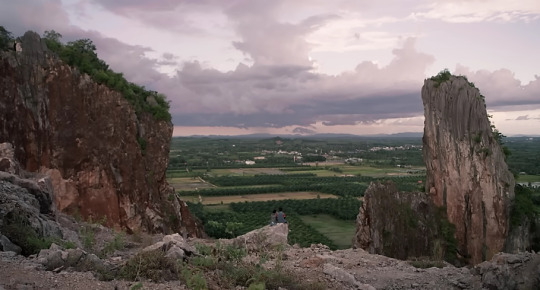
But through the power of imagination Day helped Mhok see the beauty of the sunset there (Ep.9 [4/4] 16.28) – on one level it's a trite "Life is what you make it" sort of statement, but on another it also reads like a call to action ("You can change what you don't like"). And I like to think it also embodies Last Twilight's theme of recalibrating your own way of seeing things, and looking beyond surface visuals to find the truth that speaks to you (which, in a sense, is what I'm doing now, hah!). But when applied to Last Twilight at a meta level – I think we're also being reminded that a picture-perfect ending (such as Last Twilight's Ep.12 [4/4]) can also hide the reality of gloomy clouds behind the artifice overlaid by human intervention.
Another sign that the ending of Last Twilight deserves a closer look is all the flapping about between innkeeper Cherry, Mhok and Day around the missing last page of Day's book in the Ep.9 [4/4] scene starting at timestamp 2.38.

(above) Last Twilight Ep.9 [4/4] 3.11 – Cherry tears out the last page of her copy of the novel and forces it on Mhok and Day
I'm putting in a detour for a closer look at Cherry here. She was the unsentimental custodian of her father's guesthouse, with a personality that blew hot and cold (like the weather in the south, referenced at Ep.9 [4/4] 2.12). The guesthouse seemed comfortable enough, although Mhok found it less than welcoming (Ep.9 [3/4] 6.39). And Cherry herself was also a strange mix of brusque and friendly. She was more concerned about cash than MhokDay's lack of shelter at Ep.9 [3/4] 7.36, but warmed up to them later when they explained their Mount Veha quest (allowing them to stay, treating them to a musical evening with her guitar, and accepting the payment deferral). She preferred the old way of doing things (cash only, no online transfers) and had once hosted David, the author of Last Twilight the novel, at the guesthouse.
Based on the above, I'm thinking that Cherry is a representation of Director Aof's dual role at GMMTV, where he is both a creative (director and sometime screenwriter) as well as part of management (senior director of content production, at time of writing). And in Last Twilight we see this duality acknowledged both in Cherry's mercurial double nature, as well as in the capricious weather of Songkhla. The guesthouse, on the other hand, is a representation of GMMTV itself. On the management side, Director Aof has to make and/or implement decisions on behalf of the company even though it isn't really his (just as Cherry runs what was once her dad's). GMMTV is warm and hospitable enough to the performers in its stable, but as a commercial enterprise it has to prioritize financials above most (if not all) other considerations (symbolized by the guesthouse's paradoxically comfy yet unwelcoming air, and also Cherry's indifference to MhokDay's cashless plight). Director Aof's creative focus is the arts (represented by Cherry's musical interlude) but GMMTV itself prefers the old ways of making money, i.e., old-style BLs (and this is symbolized by the guesthouse unwilling or unable to explore new ways of collecting rent with no online transfers). And just as the guesthouse hosted David, whose bittersweet ending to Last Twilight the novel wasn't satisfying to salt-of-the-earth Mhok (standing in for the tastes of the mass market), GMMTV also hosts under its roof Director Aof, the auteur behind Last Twilight the series (whose original ending I suspect may not have pleased other GMMTV bigwigs in management, and who then enforced a change).
Some of this is illustrated in part by the scene just before Mhok and Day departed from the guesthouse. When Mhok and Day asked Cherry to keep her autographed copy of the novel, she instead tore out the (signed) ending from her book and thrust it into their hands. And when Day asked if it had a happy ending – she jokingly tried to grab it back, saying "Find the ending yourselves." To me this is a metaphor that the original ending of Last Twilight the series is actually unknown to us, and the ending we got was forced into the narrative from the outside (because it's what the fans want, according to GMMTV speaking in Cherry's voice at Ep.9 [4/4] 3.15 – "I think it's more important to you than me"). And it has official sanction too (symbolized by the author's signature), indicating that Director Aof (David in another incarnation) may not have had a choice (since we're shown that the author's stamp of approval was artificially inserted into a different book instead). It also suggests (in the "Find the ending yourselves") that Director Aof was aware of how that artificial transplantation was going to be negatively received by some diehard Noppharnach fans, and he's saying to us – "Take the ending that's been given you", but at the same time "Find your own meaning in it".
And then Day tells us in no uncertain terms basically the same message, at Ep.12 [4/4] 3.37 ("We were made to discover our own preferred version of the novel’s finale").
The narrative actually tells us quite boldly in the first part of Episode 12 that we can expect the finale to start unraveling because of outside interference – I actually think this is the message behind Director Aof's cameo at Ep.12 [1/4] 10.01:

Mocked up as a hotel porter, Director Aof offered a guiding hand to Day – but at timestamp 10.06 Mhok suddenly inserted himself into the scene in an act of direct supplantation:

(above) Last Twilight Ep.12 [1/4] 10.06 – Mhok steps in and supplants hotel porter Aof (he of the white gloves)
To me this was unambiguously signaling that from this point onward the proceedings would no longer be under the guiding hand of Khun Noppharnach. In addition, hotel porter Aof's gloved hands were pure white, unbesmirched and free from stain, conveying the message that Director Aof was innocent and blameless of the plot shenanigans that were to follow.
To underscore the point, we were then shown Day taking a misstep under new (non-Aof) guidance at Ep.12 [1/4] 11.20:

(above) Last Twilight Ep.12 [1/4] 11.20 – Day stumbles without hotel porter Aof's guidance, even as Last Twilight the series begins to falter
This was jarringly out of tone, given Day's confidence in his life as a blind person, as well as Mhok's previous – and very conscientious – stint as caregiver to Day the first time around (he would instinctively stand between Day and any physical risk, and place a protective hand over protrusions that Day might bump his head on, for example). The message from this visually dissonant moment is that we should expect the ending to stumble as well, without Khun Noppharnach guiding the process.
So what can we make of the ending with this in mind? I can live with the timeskip, Mhok's return, and the eventual reunion of our main pair. These are all somewhat expected beats in a standard romance drama – and if that's what Last Twilight is setting itself up as, I won't begrudge it the tropey hallmarks that some do love (though I do think some parts could have been handled better). I even liked the airport run for all of its brash, silly sentimentality (yes, Love Actually is one of my favorite films).
But where I think Last Twilight really falls off a Veha cliff is when it starts lobbing at us a plethora of candy-sweet dreams unrealistically brought to life, one after another, in Ep.12 [4/4]. We have:
Ep.12 [4/4] 0.51 – Surprise! Day can see;

Ep.12 [4/4] 1.18 – Multiple scenes showing Day rejoining the world of the sighted, enjoying activities that were once denied to him (like reading and badminton) both alone and in the company of loved ones;

Ep.12 [4/4] 4.01 – Family time! Mhok introduces Day as his partner to his deceased family at their memorial niches, and then we see Mhok very much integrated into Day's family (signified by his pasta dish receiving chef Mhon's stamp of approval) even as we see Night and Porjai joyfully announcing another imminent addition to the numbers;
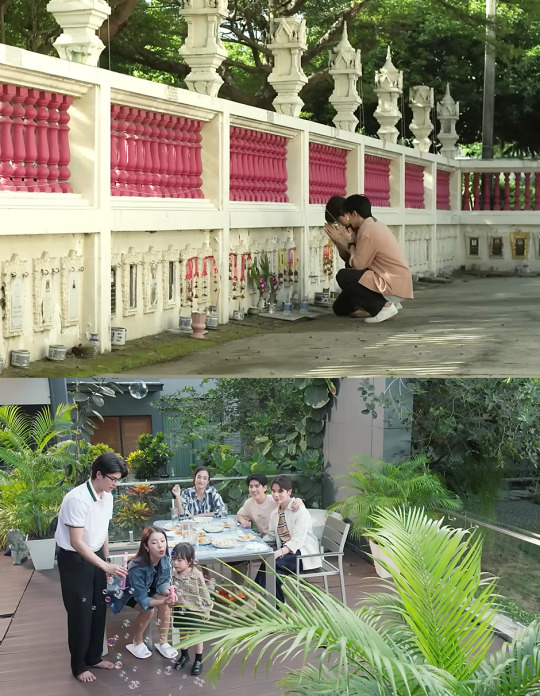
Ep.12 [4/4] 8.06 – Mhok and Day get a Mount Veha do-over, talk about the novel's ending and then act out the ending to their own love story.
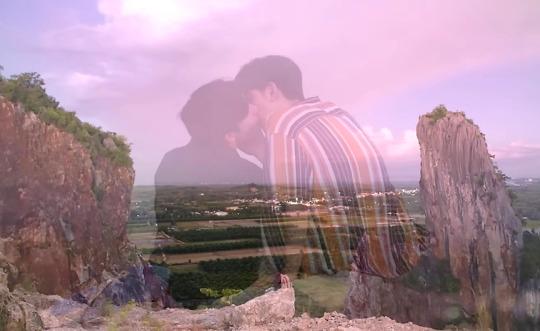
It's all just too, too fairytale, with happy news piled atop happy news, and just reeks of artificial sap and fakery.
But that's just it – I think that Director Aof and team were actually faking it. Remembering that the novel Last Twilight's full title is Last Twilight: Until the Last Light Goes Out, take a look at how each of the above little snippets of happiness is finished off – each draws to a close with its own Fade-to-Black.
Now the Fade-to-Black is a device borrowed from theater – in a stage play snuffing the lights for a few minutes of total darkness allows scenes to acquire a sense of separation, completion and closure while giving the crew time to change the sets. But here in Last Twilight it feels like we're being pitched happy ending after unrelated happy ending, each competing with the previous in the too-good-to-be-true stakes.
In the title of the novel, we're told to hold on until the last light goes out. Just when is that last light exactly though? There are so many here that each Fade-to-Black begins to feel not just like closure, but like a little death each time. (Also pertinent to note: MhokDay's kiss under that glorious sunset at Ep.12 [4/4] 13.26 gets replaced by a sky of gray clouds instead at Ep.12 [4/4] 13.37.)
Director Aof is really hammering home his point that traditional Happily Ever Afters in romance stories can be shallow and unsatisfactory, and is making us miss the trademark melancholy that propped up the wistful sentimentality in the closing scenes of his previous works.
However, much of the above is what Last Twilight is saying about Last Twilight.
At the metatextual level, what the show is communicating about BLs as a whole is even more somber. I think Director Aof is messaging that for the BL industry to head toward a happy, satisfying ending (if it really is being pushed down to lowest common denominator levels by commercial interests), it's up to us the viewers to manifest that and make it happen (just as Mee/Me and Day did for their own stories). How this might be done, I do not know. Lobbying GMMTV perhaps? Complaining ever more loudly about what this did to Last Twilight when it could have been so much more?
I rather suspect that unfortunately our numbers may not be sufficient to bring about change – the majority of Last Twilight fans actually seemed to like the final wrap-up and its fairytale ending (at least based on the reviews I've seen on MyDramaList). It's only among the more adult (and dare I say it – discerning?) viewership here in the BL sphere on Tumblr are we seeing more robust critiques of the series, mourning the greatness that could have been.
Last Twilight was a good BL all the way up to Ep.12 I think. And then it looks like we were purposely let down, to make a point about BL endings. As always, Director Aof is having the last laugh – and he lets us know this during the end credits.
For it's then that we see the various photographs that were taken by characters throughout the series but never shown to us before (it's strangely moving, and makes me think of the ending to Cinema Paradiso when Salvatore finally gets to view the priest's cut in one long montage as a final gift from Alfredo beyond the grave).

(above) The end credits of Last Twilight, replaying the scenes where the characters were photographed, alongside the images captured in the moment that hitherto were not shown to us
It's in the ending that we're finally getting to see the director's point of view (and hidden message) from his vantage point behind the camera, just as we're only getting to see those photographs (that were originally unseen by their subjects, and privy only to the one taking the photograph) right at the very end.
And the final shot? We get the whole cast and crew making the "span" gesture (that an almost-sightless Day used to approximate the distance at which he could still make things out visually, before his vision left him totally).

It's a loving salute to Last Twilight for sure, but can we perhaps detect a hint of mockery in the way it also resembles the Forehead-L for Loser gesture from the 1990s? Or a hint of a threat in the way it looks like a gun cocked and pointing? The gesture is also Thai sign language for the letter ล, which is somewhat the equivalent of the letter 'L'. And with so many 'L's or 'ล's in that shot, it's making me think of 'LOLOLOL' and also ลล standing in for ล้อเล่น/laaw len, which means Just kidding.
Is it all just a coincidence? I wouldn't put it past Aof for it not to be. But whatever it all means, I really do think he's having a hearty (if somewhat bitter) last laugh. 😔💖
#last twilight#mhokday#aof noppharnach chaiyahwimhon#reading the signs#of seeing and being seen#this is a bit of a clown post 🤡#a whole lot of speculation#and maybe some retconning#but also food for thought#finding my own version of the ending
11 notes
·
View notes
Note
"Let them go/Let me go!" Cisco & Eowells, something that explores their father/son dynamic and the manipulation Eowells probably put Cisco through. Pretty please!
Gladly! They’re so tragically compelling
He’d loved him, once. Cisco had looked up to him, like the father he wished he had—he loved his family, he did, but it was…easier, with Dr. Wells. Less…complication, less tension. Dr. Wells didn’t frown when Cisco rambled on too long or spiraled into rapid-fire technical jargon, even when said jargon was outside of Dr. Wells’s expertise. He simply smiled indulgently and asked him to explain it a little more simply so he could understand Cisco’s brilliance.
That was always how he framed it: So I can understand your brilliance more clearly.
And of course, he’d handpicked Cisco, fast-tracked him through most of the preliminaries in the STAR hiring process. It had made Hartley jealous, Cisco could tell…but any sympathy Cisco felt was quickly dashed by Hartley’s poor bedside manner. Still, he never stopped doing his best, and Dr. Wells’s approval was worth everything.
So of course Cisco trusted him. Of course, right up until the bitter end, he defended Dr. Wells, steered away from Joe’s suspicions. Even when he tried to convince Caitlin that Dr. Wells was doing something shady, Cisco never…he went down to that speedster trap hoping he was wrong. On some level, he trusted Dr. Wells right up until he activated the speedster trap and realized…and realized…
“Oh, I’m not like the Flash at all.”
“Some would say I’m the Reverse.”
Cisco was frozen. His mind spun in place, no thoughts whirring in it, like a spool with no thread or a single, unattached gear.
“You’re…you’re the Reverse Flash,” he murmured, every instinct screaming at him to run, but knowing he wouldn’t get far.
“You and I haven’t been properly introduced.” Dr. Wells smiled. “I am Eobard Thawne.”
“Like Eddie.”
“Let’s call him a…distant relative.”
Slowly, bit by bit, Cisco unraveled Dr W—no, Thawne’s lie. How he’d pulled off the double trick with something called a speed mirage, how his initial target had been Barry…how all he wanted was to go home. To the future. Because he was from the future.
(It was terrifying to realize that, in any other circumstance, Cisco would think that was so cool, so awesome. But…here, now, in these circumstances? It was horrifying.)
And Cisco suddenly, terribly realized that someone knowing Thawne’s plan was…was dangerous. Fatal, even.
So he beat Thawne to the punch, pleading: “Let me help you.”
Let me go, he meant, desperate and afraid. I won’t tell anyone, I swear.
But Dr W—Thawne smiled sadly, shaking his head. “You're smart, Cisco…but you're not that smart.”
And Cisco wasn’t that dumb either, to think Thawne would really take him up on it. Villains like him…they always worked alone.
“Do you know how hard it has been to keep all of this from you, especially from you?” He continued softly. “Because the truth is, I've grown quite fond of you. And in many ways, you have shown me what it's like to have a son.”
Cisco’s eyes widened, but Thawne’s hand ripped through his chest before he could react.
(Really, though, that was just cosmetic. Thawne calling him “son” was the real killing blow, as far as Cisco was concerned.)
“When I go talk to the friends and family of a murder suspect, someone I know is guilty, and I tell them the person they love is a killer, guess what they all say?”
That’s not the person I know.
“That’s not the person I know.”
And so it wasn’t. But Cisco had realized that far, far too late.
prompt list!
#the flash#cisco ramon#eobard thawne#eowells#morgan & thawne are ofc similarly compelling#in such a tragic + interesting way 😭#lavi’s prompt fills
17 notes
·
View notes
Text
Preliminaries round 2 match 6
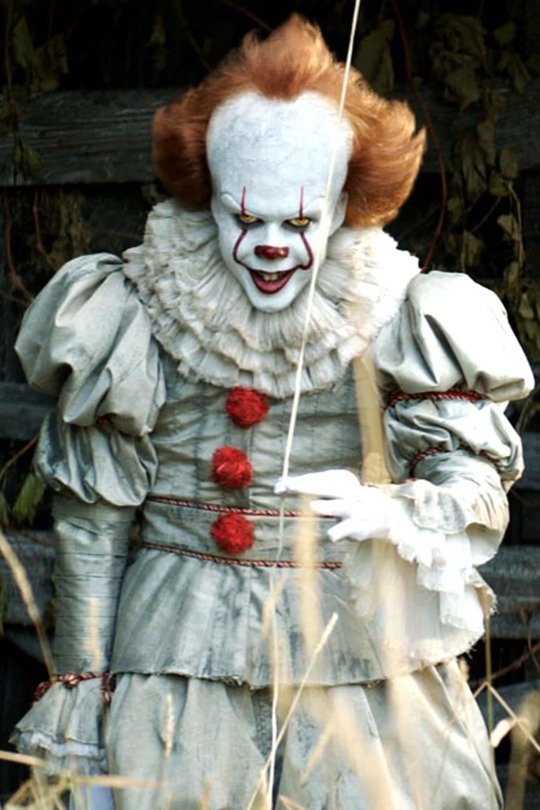
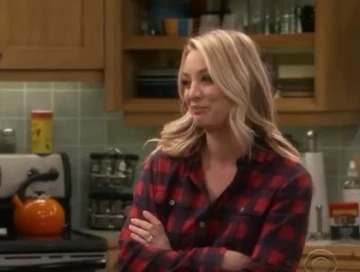

Pennywise (It) vs Penny Hofstadter (Big Bang Theory) vs Penny (Dr Horrible’s Sing Along Blog)
Only 2 will move on
Propaganda under the cut
Pennywise (IT)
• Scary, goofy outfit, gives out balloons
• he's a clown. he's a demon. he's an alien. he's a serial killer. a bunch of kids with a baseball bat are enough to take him down.
• funny murder clown, i wanna see him among all the other probably not clowny pennies.
• :)
Penny Hofstadter (Big Bang Theory)
• Penny has no last name but when married, it becomes Penny Hofstadter. Her brother was in jail for drugs. She definitely does not have an alcohol problem. She had an addiction to video games causing her to not move for days. She marries Leonard despite everyone believing she could do better. She is described as a gorilla many times, which is ironic as she starred in a film where she turned into a gorilla.
• She's the only main character who doesnt have a phd but also the only one who knows how to gut a fish so i guess it balances out
Penny (Dr. Horrible’s Sing Along Blog)
• she’s an incredible and tragic character whose love and trust gets her killed in the end. also Dr horrible is a very underrated media in general I want her to win
• Ordinary person in a supervillain story, just wants to shelter people and do her laundry. Relatable!
• She’s a sexy lamp but boy is she a cutie
• She’s the only genuinely good person in the whole show. She’s sweet and very naive. Love her <3
• Penny is an extremely empathetic and caring person. She works at a homeless shelter and is gentle and friendly with everyone there. She meets the main character at a laundromat and immediately becomes a very supportive and encouraging friend. Her goal throughout the narrative is to open a second location of the shelter so she can help more people. She has a sad backstory of not being accepted when she was younger and has learned to focus on optimism to make it through. Her main flaw is that she tolerates a romantic relationship with a man who doesnt respect her because she isn't well-practiced with respecting herself, but after he takes it too far, she does stand up for herself and walk out on him (growth!)
Pollrunners notes: all of these are some of the most submitted characters
#penny poll#tournament poll#pennywise#it#steven king#penny hofstadter#big bang theory#doctor horrible's sing along blog#dhsab
35 notes
·
View notes
Text
Soulmate Bracket: Preliminary Round! [Side A]


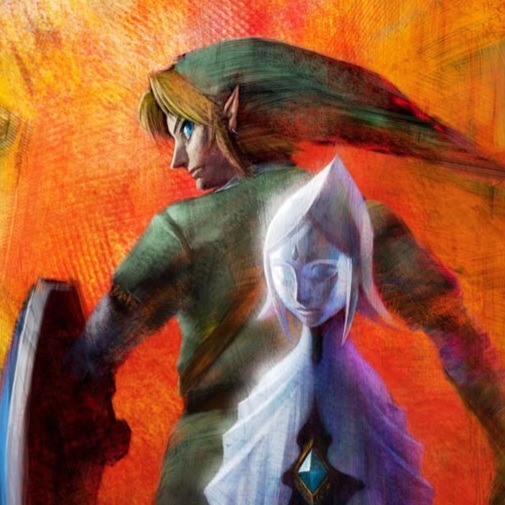
Provided reasoning under cut:
Link & Zelda:
They're canonically trapped in a cycle of reincarnation together, and each instance of them are fated to find each other. Across all the different games, they always end up having to trust and rely on each other more than anyone else!
they're literally eternally bound to each other 🥺...zelda's first incarnation was a goddess who gave up immortality to be reincarnated with link...they find each other every single time even when they don't realize it (wind waker, ocarina of time)...in breath of the wild, zelda's powers are awakened by her love for link...
There's so many versions of Zelda and Link and almost all of them are in love, the goddess Hylia fell in love with a mortal man and after his death she took a mortal form and reincarnated both of their spirits and they became Zelda and Link. They are constantly reincarnated and they find each other every time and they fall in love, the end
For a long time it was left kind of vague as to whether the games were connected but it's pretty much confirmed in-universe now that Link and Zelda appear again and again in the timeline. Also in Breath of the Wild specifically, Link effectively dies and Zelda disappears and becomes energy (?) but he is revived in the Shrine of Resurrection with no memories except for those of Zelda, and must defeat Calamity Ganon to save her. They aren't always romantically implied in every timeline but they DO always reincarnate and fight Ganon together. So yeah I think they're soulmates (and maybe soul enemies with Ganon)
Link & Zelda & Ganondorf:
I’m sure someone’s done this but I gotta get my vote in. They’re very good and they are literally bound together in a tragic cycle of reincarnation
This isn't even a romantic group, but you know sometimes you just gotta have three people trapped in an endless cycle of reincarnation with one trying to kill the other two because a couple of deities were being dickheads millennia ago y’know?
Demise curses Zelda and Link: "I will rise again. Those like you, those who share the blood of the goddess [Hylia/Zelda] and the spirit of the hero [Link], they are eternally bound to this curse. An incarnation of my hatred shall ever follow your kind!". Every time true evil threatens the land (usually with Demise reincarnated as Ganon/Ganondorf) a Link and a Zelda are brought together to defeat him. These three souls/spirits find each other again and again through their reincarnations
MORTAL ENEMIES SOULMATES TIED IN A LOCK FOR BALANCE IN A ROCK PAPER SCISSORS LIKE THING i just think they're neat
Link & Fi:
Link is reincarnating. Fi is the spirit of the Master Sword, the sword he wields in nearly every life. The sword is literally bound to his soul-- he's the only one who can wield it. In the one game that Fi appeared in (the whole the-sword-has-a-spirit thing is relatively new, but the actual sword is not), she was his companion and they were very close and the scene where she left actually made me feel things and I. I don't usually intensely feel things from media.
Fi is usually very emotionless (or at least doesn't show them; the one time her faces changes was a VERY small smile after the villain was (thought to be) defeated, and it's hard to miss), but in her last scene when they separate, she calls Link by name (usually she calls him "Master" or "Master Link"), says that at the beginning their relationship was just her fulfilling her duties to Hylia (the goddess), and, I quote, "I have come to consider the information corresponding to our time together among the most precious data I have on record."
She then says she doesn't have the capability to understand the human spirit, and that as she prepares to go to sleep forever she's feeling an emotion she can't identify. What does she think that emotion is? HAPPINESS.
Here's her final words:
"Before I enter the sleep that calls me to the sword, I wish to relay to you words that I recorded many times over the course of our journey.
Many have said them to you thus far, but I now wish to say them for myself… Thank you, Master Link. May we meet again in another life…"
This Link is one of the more expressive ones, but this scene in particular is one of the ones where he's most expressive. He's sad (but still understanding), and you can tell, and if Nintendo wasn't COWARDS he would have been crying because I know I nearly was!
We don't get to see much of their personal relationship, but there's a new Zelda game coming out in literally three days and I think there's a good chance that Fi will be in it, and I really hope we get to see more of them even though Link is different.
Anyway. Consider them. They are very dear to me. If I could change one thing about Skyward Sword (which in my opinion is very hard to improve on), it would be to have more of them. I know I'm going to be the only one submitting them, but PLEASE. Let my 430 word essay convince you.
37 notes
·
View notes